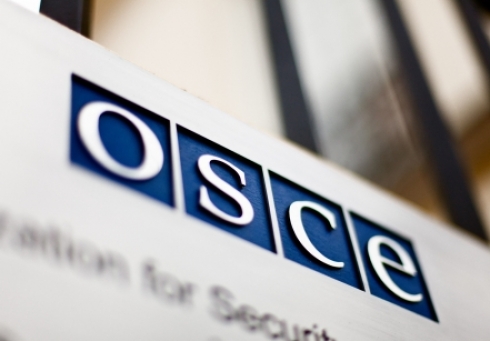US State Dept yet to decide on candidacy of Minsk Group co-chair

By Sara Rajabova
The State Department has not yet decided on the candidacy of the US co-chair to the OSCE Minsk Group -- which is brokering settlement of the Armenia-Azerbaijan conflict over Nagorno-Karabakh, U.S. State Department spokesperson Victoria Nuland told a daily press briefing on Thursday.
Nuland said new Secretary of State John Kerry is looking at a full slate of personnel decisions that he has to make in consultation with the White House.
Ian Kelly currently acts as a temporary representative of the United States to the OSCE Minsk Group.
The new US secretary of state said earlier that the status quo in the Nagorno-Karabakh conflict was unacceptable and promised that the U.S. would continue to be closely involved in the conflict resolution process during his tenure. He said that as before, the U.S. will continue to be committed to find a peaceful and sustainable settlement of the long-standing dispute through the mediation of the OSCE Minsk Group.
Lasting settlement of the conflict can only be ensured through an agreement reached by peaceful means, Kerry said.
The latest meeting between the mediators of the Minsk Group -- whose co-chairs the United States, France and Russia are mediating the peace process -- and the foreign ministers of Azerbaijan and Armenia was held on January 28.
The OSCE mediators stated that the sides had reiterated their support for a peaceful settlement of the Nagorno-Karabakh conflict and their determination to continue the peace negotiations.
Recently, Azerbaijani Foreign Minister Elmar Mammadyarov said that the next meeting of the Minsk Group co-chairs will take place after the presidential elections in Armenia, which will be held next week.
He said the mediators voiced several proposals on the conflict resolution during their last meeting in late January.
"Presidential elections will be held this year both in Armenia and in Azerbaijan. Our main purpose is the continuation of the peace talks and achieving results in this regard."
The Nagorno-Karabakh conflict emerged in 1988 when Armenia made territorial claims against Azerbaijan. Since the lengthy war in the early 1990s that displaced over one million Azerbaijanis, Armenian armed forces have occupied over 20 percent of Azerbaijan's internationally recognized territory, including Nagorno-Karabakh and seven adjacent regions.
The UN Security Council has adopted four resolutions on Armenia's withdrawal from the Azerbaijani territory, but Armenia has not followed them to this day.
Peace negotiations are underway on the basis of a peace outline proposed by the Minsk Group co-chairs and dubbed the Madrid Principles, also known as Basic Principles. The document envisions a return of the territories surrounding Nagorno-Karabakh to Azerbaijani control; determining the final legal status of Nagorno-Karabakh; a corridor linking Armenia to the region; and the right of all internally displaced persons to return home.
Here we are to serve you with news right now. It does not cost much, but worth your attention.
Choose to support open, independent, quality journalism and subscribe on a monthly basis.
By subscribing to our online newspaper, you can have full digital access to all news, analysis, and much more.
You can also follow AzerNEWS on Twitter @AzerNewsAz or Facebook @AzerNewsNewspaper
Thank you!
